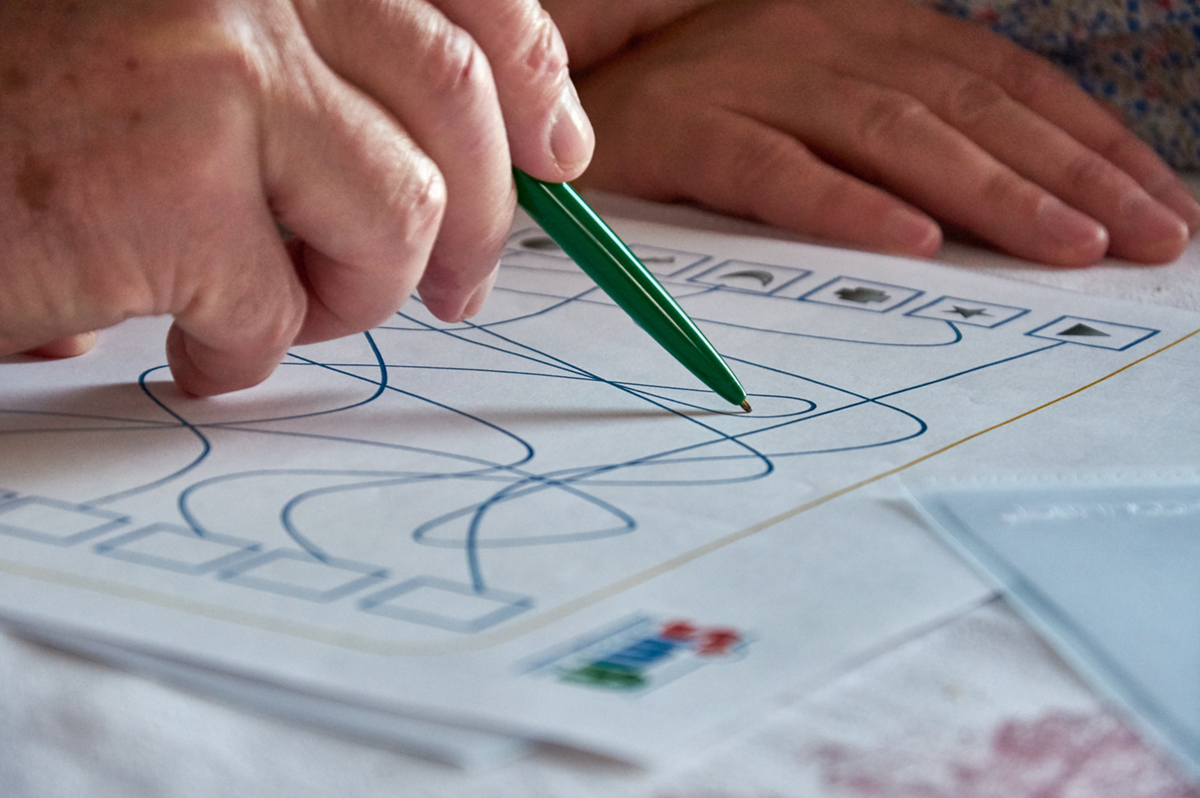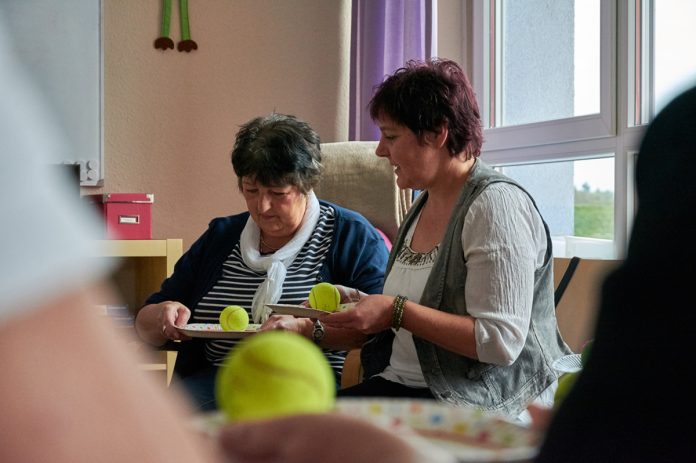Lisa Ehrhardt, Deputy Director “Regional Offers Living in Old Age” at Pfalzklinikum presents the work of their day centers for the elderly in the Palatinate
Pfalzklinikum is a service provider for mental health in Southwest Germany. Its three certified day centres for the elderly focus on the promotion of cognitive and motoric skills, such as the one detailed below in italics.
The tips of your thumbs touch the other fingertips of your hands one after the other. First the index finger, then the middle finger, after that the ring finger and finally the little finger. Both hands perform this exercise parallelly, however, in opposite directions. If the left hand begins with the thumb – index finger, the right hand starts with the thumb – little finger.
This exercise elucidates one of the fundamental principles of the SimA® training. SimA® stands for “autonomy in old age” (Selbstständigkeit im Alter). By linking movement and memory performance, both cerebral hemispheres are addressed simultaneously. It has been proven that, thus, maximum training results are achieved. This concept was worked in 1991 and is based on a prevention study of the University of Nürnberg-Erlangen in Germany headed by Prof Dr Wolf Dieter Oswald and the positive effects in the case of regular training were substantiated in two longitudinal studies which were conducted over several decades.
Training promotes cognitive and motoric skills
Since 2015, Pfalzklinikum has offered the SimA® training courses. Pfalzklinikum is a service provider for mental health in Southwest Germany. Its certified day centres follow a resource-orientated approach to help maintain their day guests‘ autonomy as long as possible.
“It’s great that my father is fostered in the day centre despite his forgetfulness. At home, he shows more interest now and leaves through the newspaper again“, says the relative of a day guest.

Being the first scientifically proven non-drug training concept for cognition and psycho-motorics, the particularity of the programme is its continuous adjustment to the level of difficulty. Therefore, this training can also be used for persons suffering from dementia or other cognitive impairment. For these people, too, the second study proved to have a positive effect regarding their autonomy. So, the frequency of falls was reduced, and the skills learned could be transferred from practice to every-day life. The more often the training is carried out, the better the results are. However, one training session a week is enough to maintain one’s autonomy and promote resources.
The certified programme offered in all three day centres
The SimA® training can only be offered by trained and certified persons having passed a written examination. The qualification comprises several modules with a total of 56 teaching units. In these, the basics of memory, psycho-motorics, changes due to dementia, skills training and bibliographical work are imparted. In the subsequent practical period, the knowledge shall be put into practice. The qualification ends with a written examination.
The three day centres for the elderly have seven SimA® trainers and are, thus, certified as an institution. The SimA® activity offered in the day centres is embedded in a varied and personalised range of services and activation programmes. The day centres care for people over the age of 60 who seek company and interaction and specifically wish to maintain their autonomy. Naturally, this offer also supports the caring relatives at home since the burden on them is eased and practical skills for everyday life are trained.
References
https://www.sima-akademie.de/simar/was-ist-simar/ – accessed July 2, 2018
https://www.sima-akademie.de/simar/wissenschaftlicher-hintergrund/ – accessed July 2, 2018
Please note: this is a commercial profile
Lisa Ehrhardt
Deputy Director Regional Offers –
Living in Old Age
Pfalzklinikum AdöR











